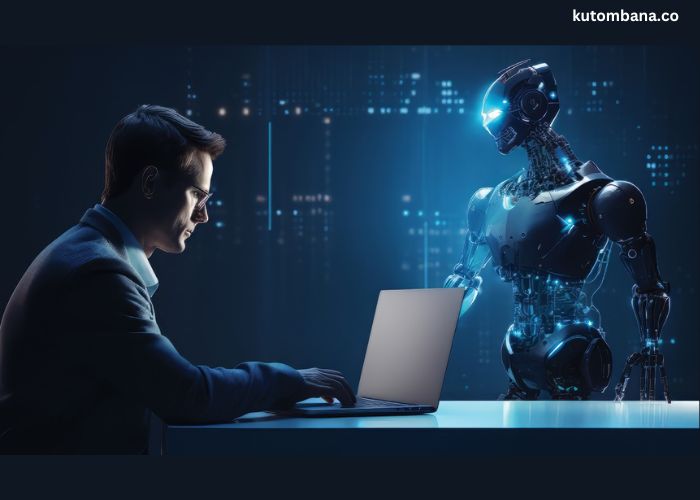Artificial Intelligence (AI) has revolutionized the technological landscape, altering how businesses, industries, and individuals interact with the world. From automation to deep learning, AI innovations are driving unprecedented advancements across various sectors. This article explores the transformative role of AI in modern technology, delving into key innovations and their profound impact.
The Rise of AI in Modern Technology
AI is no longer a futuristic concept; it has become an integral part of our daily lives. The proliferation of big data, advanced algorithms, and powerful computing capabilities has enabled AI to evolve rapidly. Organizations across industries leverage AI to enhance efficiency, improve decision-making, and create innovative solutions.
Key AI Innovations Transforming Technology
1. Machine Learning and Deep Learning
Machine Learning (ML) and Deep Learning (DL) are the cornerstones of AI advancements. ML enables computers to learn from data without explicit programming, while DL, a subset of ML, uses neural networks to simulate human-like cognitive functions. These technologies power applications like predictive analytics, speech recognition, and image processing.
- Predictive Analytics: Businesses use AI-driven analytics to forecast trends, customer behavior, and market dynamics, allowing for proactive decision-making.
- Speech and Image Recognition: AI-powered voice assistants like Siri and Alexa, as well as facial recognition technology in security systems, demonstrate AI’s growing role in our daily lives.
2. Natural Language Processing (NLP)
NLP enables machines to understand, interpret, and respond to human language. Recent advancements in NLP have led to sophisticated chatbots, virtual assistants, and automated content generation.
- Conversational AI: AI-driven chatbots enhance customer service by providing instant responses and personalized recommendations.
- Text Analytics: AI extracts insights from vast amounts of textual data, aiding businesses in sentiment analysis and market research.
3. Computer Vision
Computer vision allows AI to interpret and process visual information, making it a game-changer in various fields.
- Autonomous Vehicles: Self-driving cars rely on AI-driven vision systems to detect objects, recognize traffic signals, and navigate safely.
- Healthcare Diagnostics: AI-powered medical imaging assists doctors in detecting diseases such as cancer with greater accuracy and speed.
4. AI in Automation and Robotics
AI-driven automation is reshaping industries by optimizing workflows and reducing human intervention.
- Manufacturing: AI-powered robots streamline production lines, improving efficiency and minimizing errors.
- Smart Assistants: AI-integrated virtual assistants like Google Assistant and Cortana help users manage tasks, set reminders, and control smart home devices.
5. AI in Cybersecurity
With cyber threats becoming more sophisticated, AI plays a critical role in strengthening security measures.
- Threat Detection: AI algorithms detect anomalies in network traffic, identifying potential cyber threats before they escalate.
- Fraud Prevention: Financial institutions leverage AI to analyze transaction patterns and flag suspicious activities, reducing fraud risks.
6. AI in Healthcare
The healthcare industry has seen remarkable transformations due to AI, leading to improved patient care and medical research.
- Drug Discovery: AI accelerates the drug development process by analyzing biological data and predicting effective compounds.
- Telemedicine: AI-powered virtual healthcare assistants provide remote diagnosis and patient monitoring, making healthcare more accessible.
7. AI in Finance
Financial institutions harness AI to optimize operations, enhance security, and improve customer experiences.
- Algorithmic Trading: AI-driven trading systems analyze market trends in real-time, executing high-frequency trades with precision.
- Personalized Banking: AI chatbots and virtual financial advisors offer tailored financial guidance to users based on their spending habits.
8. AI in Education
Education is experiencing a paradigm shift with AI-driven personalized learning and smart educational tools.
- Adaptive Learning Platforms: AI analyzes student performance to provide customized learning paths, improving knowledge retention.
- Automated Grading: AI streamlines the assessment process, allowing educators to focus on student engagement.
9. AI in Smart Cities
AI contributes to urban development by optimizing resources and enhancing sustainability.
- Traffic Management: AI-powered traffic monitoring systems reduce congestion and improve road safety.
- Energy Efficiency: Smart grids powered by AI optimize energy distribution, reducing waste and lowering costs.
10. AI in Entertainment and Media
AI is reshaping content creation and media consumption experiences.
- Content Recommendation: Streaming platforms like Netflix and Spotify use AI to recommend content based on user preferences.
- AI-Generated Art and Music: AI-driven tools create music compositions, paintings, and digital art, pushing creative boundaries.
The Future of AI: Ethical Considerations and Challenges
While AI presents numerous opportunities, it also raises ethical and practical challenges.
- Bias and Fairness: AI systems must be trained on diverse datasets to prevent biased decision-making.
- Privacy Concerns: The widespread use of AI in surveillance and data analytics raises concerns about user privacy.
- Job Displacement: As AI automates tasks, industries must focus on reskilling the workforce to adapt to new roles.
Conclusion
AI innovations are transforming modern technology, driving progress across industries and redefining human interactions with machines. As AI continues to evolve, businesses and policymakers must balance innovation with ethical considerations to ensure a responsible AI-driven future. Embracing AI while addressing its challenges will unlock limitless possibilities, paving the way for a smarter and more efficient world.

